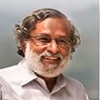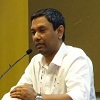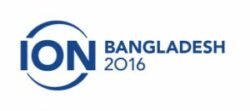The program covered IPv6, DNSSEC, Securing BGP, and TLS for Applications.
ION Conferences bring network engineers and leading industry experts together to discuss emerging technologies and hot technology topics. Early adopters provide valuable insight into their own deployment experiences and bring participants up to speed on new standards emerging from the IETF.
ION lets network operators stay ahead of the curve to understand and deploy emerging Internet technologies, and presents a unique opportunity to discuss the future of the Internet with the people who help craft it. More than a simple lecture series, ION events provide hands-on interaction with our speakers so you walk away with the answers you need to deploy new standards and technologies on your own networks.
Events bring together the best and brightest from the Internet industry to learn about the latest news, ideas, and technologies in a relaxed and educational atmosphere.
Agenda and Presentations
| TIME | SCHEMA |
| 9:15 AM | Opening Remarks Kevin Meynell (Internet Society) Presentation |
| 9:25 AM | Special Guest Remarks – Welcome from ISOC Dhaka Chapter Prof. Dr. Shabbir Ahmed (President ISOC Dhaka Chapter) Presentation |
| 9:35 AM | Secure BGP and Operational Network Report of Bangladesh Md. Jahangir Hossain (Vice Chair, ISOC Bangladesh Dhaka Chapter) Presentation |
| 9:50 AM | Routing Resilience Manifesto and MANRS The Routing Resilience Manifesto initiative, underpinned by the “Mutually Agreed Norms for Routing Security (MANRS)” document that includes a set of actionable recommendations, aims to help network operators around the world work together to improve the security and resilience of the global routing system. In this session, we’ll explain the basic principles outlined in MANRS, how to sign up and support the effort, and how to get involved in helping to further increase global routing security. Moderator: Kevin Meynell Panelists: Fakrul Alam (APNIC), F. M. Rashed Amin (Link3 Technologies), Jan Žorž (Internet Society) Presentation |
| 10:30 AM | Implementing DANE Jan Žorž (Internet Society) Presentation |
| 11:00 AM | TEA BREAK |
| 11:30 AM | Opening Remarks Sumon Ahmed Sabir (bdNOG Board of Trustees) |
| 11:40 AM | bdNOG Report F. M. Rashed Amin (bdNOG President) |
| 11:50 AM | Special Guest Remarks M.A Hakim (bdNOG Board of Trustees & President ISPAB Bangladesh) |
| 12:00 PM | Keynote. Potential of Indigenously Developed Telemedicine using Internet: Local Solutions with Global Potential Dr. Khondkar Siddique-e-Rabbani (Department of Biomedical Physics & Technology, University of Dhaka) Presentation |
| 12:45 PM | Chief Guest Remarks Dr. Shahjahan Mahmood (Honorable Chairman, Bangladesh Telecommunication Regulatory Commission) |
| 1:00 PM | LUNCH BREAK |
| 2:00 PM | Case study report of Bangladesh IPv6 deployment This presentation had two parts. Firstly, it focused on IPv6 deployment status in Bangladesh. The current statistics from different sources were analyzed and represented there. Though the deployment trend is upward, still not many ISPs are IPv6 enabled. The corporate and enterprise networks as well as the government websites are still running IPv4 only. In this part I also talked about the challenges and how to overcome them. In the second part of the presentation, I shared my experience of IPv6 deployment planning and challenges in Bangladesh Research and Education Network (BdREN). Right now BdREN is running a very limited scale pilot network with only six universities. But soon it will migrate to its countrywide larger network that is going to connect more than 34 universities with dual stack connectivity from day 1. I was directly involved in the planning and deployment of the network and faced many challenges and gathered valuable experience that I would like to share in the presentation. I would talk about IPv6 address planning and migration planning. The presentation would give an overall idea about the IPv6 deployment steps. Abdul Awal (BDREN) Presentation |
| 2:25 PM | APNIC Update Pubudu Jayasinghe (APNIC) |
| 2:40 PM | The Future of SIP in WebRTC Shaila Sharmin (Link3 Technologies) |
| 3:05 PM | Holistic view of 802.1x integration & optimization Faisal (BDPEER) |
| 3:30 PM | TEA BREAK |
| 4:00 PM | What’s Happening at the IETF? Internet Standards and How to Get Involved What’s happening at the Internet Engineering Task Force (IETF)? What RFCs and Internet-Drafts are in progress related to IPv6, DNSSEC, Routing Security/Resiliency, and other key topics? We’ll give an overview of the ongoing discussions in several working groups and discuss the outcomes of recent Birds-of-a-Feather (BoF) sessions, and provide a preview of what to expect in future discussions. Kevin Meynell (Internet Society) Presentation |
| 4:15 PM | IPv6 in Asia: Laggards and Trends IPv6 has been available from the Regional Internet Registries for more than 15 years. Adoption of the new address system in APAC countries, however, has been lagging. According to the most recent State of the Internet report by Akamai, while connection speeds are surging in the region, not a single Asian country made it in the top 10 list for IPv6 adoption. As far as Bangladesh is concerned, an article in the Jagannath University Journal of Science last year pointed to “lack of awareness, inefficient planning and apathy” as likely impediments. This panel will assess regional and countrywide deployment status and consider related trends, such the impact of Internet of Things (IoT) technology on IPv6 and the potential use of IPv6 protocols in DDoS attacks. Moderator: Kevin Meynell (Internet Society) Panelists: Asela Galappattige (Sri Lanka Telecom) Nurul Islam Roman (APNIC); Sumon Ahmed Sabir (Fiber@Home) & Matsuzaku Yoshinobu (IIJ) Presentation |
| 5:15 PM | Closing Remarks Kevin Meynell (Internet Society) Presentation |
Speakers
Prof. Shabbir Ahmed, Chairman, Department of Computer Science and Engineering, Dhaka University

Prof. Shabbir Ahmed is the chairman and professor at the Department of Computer Science and Engineering of Dhaka University, Dhaka. Before joining Dhaka University in 1997, he served as a system administrator at Drik Picture Library, the first email service provider of Bangladesh. He was awarded Commonwealth Scholarship, IDB Scholarship, and University Postgraduate Award for his extraordinary academic background. He completed his Ph.D. in Computer Science & Engineering in 2010 from the University of New South Wales, Sydney, where he worked on routing issues of Delay Tolerant Networks. His current research includes protocol designs of DTN, network security, data mining, and robotics. He is currently serving as the president of ISOC Bangladesh Dhaka chapter.
Md. Abdul Awal, Manager (Network), BdREN

Md. Abdul Awal is working as Manager (Network) in BdREN, the National Research and Education Network of Bangladesh. There he leads the data and transmission network team. His primary responsibility includes planning and operational management of BdREN’s countrywide network infrastructure. Previously, he worked for IP transit provider network in Bangladesh.
Awal is a delegate and EC member of ISOC-BD Dhaka Chapter. He is actively involved with bdNOG. He is a member of Multi-stakeholder Steering Group (MSG) of APrIGF and is contributing to regional internet governance framework with ISOC-BD. He is also an interim discuss-group member of Asia Pacific School on Internet Governance (APSIG). Awal founded NDLC, a not-for-profit initiative that aims to raise internet awareness and technical knowledge development among the youngsters and students. He is a former fellow of IETF, ICANN, APNIC and APAN.
Mr. Awal studied Electronics and Communication Engineering. His areas of expertise and major interests include Routing and Switching, MPLS, BGP, IPv6, Network Infrastructure Security and Internet Governance.
Asela Galappattige, Sri Lanka Telecom PLC

Asela is a chartered engineer with 18 years of experience in ISP, Data Center, IP networks, and Telecommunication sectors. Asela is an enthusiast in technology who pioneered the IPv6 implementations in SLT ISP and leads the IPv6 Task Force of SLT. He contributes to the Internet community as a member of ISoC, a technical expert and a trainer in internet related technologies and strategies.
Asela is currently responsible for Project Evaluation in Sri Lanka Telecom PLC (SLT).
He started his employment as an IT engineer and joined SLT as a Planning Engineer for telecommunication networks. Prior to the current role as a project manager he was managing the ISP network of SLT in the capacity of DGM/ISP Network Operations.
He also serves as a technical expert for SLT in areas such as ISP, IDC and IP networks and contributes as a member technical evaluation teams and corporate governance boards.
Asela holds an MBA, and an MSc in Wireless Communications. His first degree (BSc Eng.) is in Electronics and Telecommunications Engineering.
He is also a PMP and PRINCE2 (Foundation) certified Project Manager who has experience in managing large scale Telecom, ISP and Data Center projects.
Md. Jahangir Hossain, Vice Chair, ISOC Bangladesh Dhaka Chapter

I’m the founding member and Vice Chair of Internet Society (ISOC) Bangladesh Dhaka Chapter and Founding member of Executive Committee of Bangladesh Network Operator Group (bdNOG). I’m also National Point of Contact (NPoC) of Space Generation Advisory Council (SGAC), in support of the United Nations programme on space applications.
I have participated ISOC Next Generation Leadership (NGL) program and fellowship alumni member of South Asian Network Operators Group (SANOG), Internet Corporation for Assigned Names and Numbers (ICANN), Internet Engineering Task Force (IETF) and Internet Governance Forum (IGF) Secretariat, United Nations.
Now I’m based in Dhaka, Bangladesh where professionally as a Chief Technical Officer of Open Communication Limited a leading Internet Resource Analysis, Solution and Consultancy organization especially on IP Transit provider, International Gateway (IGW), Interconnection Exchange (ICX) and Internet Service Provider. I have completed graduation and master degree Dept. of Computer Science & Engineering from Daffodil International University in Bangladesh.
Kevin Meynell, Content and Resource Manager, Internet Society

Kevin Meynell is the Content and Resource Manager at the Internet Society. His main responsibility is for the Deploy360 program which encourages deployment of key Internet technologies including IPv6, DNSSEC Routing Security and TLS. This involves identifying resources and producing content that support the goals of the program, along with social media and outreach activities to promote and raise awareness of developments in these areas.
Kevin graduated from Middlesex University with a degree in Geography, and discovered the Internet whilst working at the JET Nuclear Fusion Project in the early-90s. This led to a move to UKERNA (now JISC) in 1995 where he worked on the SuperJANET and National Dial-Up Service initiatives, before joining TERENA (now the GÉANT Association) in 1997. Aside from an 18-month sabbatical to help establish CENTR, he spent the next 16 years working on activities including the 6NET and 6DISS IPv6 deployment projects, eduroam, the Global Lambda Interconnect Facility, the TERENA X.509 PKI Service and TF-CSIRT, as well as being responsible for NREN Development Support in Eastern and Southern Europe, Central Asia, the Middle East and occasionally the Caribbean region.
After leaving TERENA, he worked as the Manager of the Shibboleth Consortium that develops the widely Shibboleth web single sign-on software, before moving to APNIC as its Head of Training in 2014. He joined the Internet Society in October 2015.
Kevin has also been the Executive Secretary of GLIF since 2012, organising the Annual Global LambdaGrid Workshops. He was previously the Coordinator and ex-officio Steering Committee member of TF-CSIRT from 2008 to 2012, where he developed a new governance structure, CSIRT certification process and training courses, as well as establishing the joint FIRST/TF-CSIRT Technical Symposia. Whilst at CENTR he chaired the RIPE Domain Name Registration Forum, and more recently organised NREN development conferences for the European Union’s Eastern Partnership as well as the TERENA/RIPE promotional events for World IPv6 Day and World IPv6 Launch Day.
Professor K Siddique-e Rabbani

Having obtained a PhD in Electronics in 1978 under a Commonwealth Scholarship Dr. Rabbani joined the Department of Physics of the University of Dhaka and soon became a pioneering researcher focusing on the application of Physics in Medicine in order to deliver the benefits to the common people directly. He made the first IT enabled (computerised) medical equipment in Bangladesh in 1988 using which he started offering routine clinical service immediately. Later research in diverse areas within this new discipline flourished in Dhaka University through his leadership and in 2008 he founded the department of Biomedical Physics & Technology (BMPT) and was its first Chairperson till June 2015, when he went on a leave preparatory to retirement. He focused on PhD level research at the new department which attracted a large group of talented youths and the team has already developed many indigenous electromedical products, many of which are IT enabled. Their innovations also include methods for disease diagnosis or for physiological study. The outcomes of all these efforts have already crossed the borders of Bangladesh, taking a firm place in the international arena. Together with his students he established a non-shareholding company, BiBEAT Ltd., for piloting manufacture and marketing of indigenous products and an organisation named International Centre for Technology Equalisation (ICTEq), with an aim to bridge the technology gap existing between nations today. In 2011 Professor Rabbani’s team embarked upon the development of an indigenous telemedicine system with several integrated diagnostic devices offering real time data transmission through internet. They have deployed this system at 10 rural centres as a field trial and the outcome is very bright. This team is probably the leading group in the Third World with such expertise and experience. Professor Rabbani is an active member of the Health Technology Task Group of the International Union of Physical and Engineering Sciences in Medicine (HTTG-IUPESM) and was the past President of Bangladesh Medical Physics Association (2010-2015). Even though he will be retiring soon formally, he still will continue to lead the young team for many years to come.
Nurul Islam Roman, Training Manager, APNIC

Nurul Islam Roman is in charge of APNIC training program and Technical Assistance Services (TAS) throughout the Asia Pacific region. He possesses specialized skill in design, build and manage large scale IP network infrastructure for both service provider and enterprise networks using IPv4 and IPv6 protocol. Nurul has got 17 years of extensive work experience in the Internet Service Provider (ISP) and telecommunication industry as network architect in a highly technical and senior management position. He has completed his Master Degree in UK and before joining APNIC Nurul has worked for a number of ISP and telcom company in UK and Asia Pacific region. His key technical interest area are:
Internet Resource Management, IPv6, Routing and Switching, MPLS, BGP, Network Security, Internet Routing Registry, RPKI, ISP Services.
Sumon Ahmed Sabir, Chief Strategy Officer, Fiber@home Limited

Sumon Ahmed Sabir is working as Chief Strategy Officer at Fiber@home Limited (Largest NSP and one of the largest IP Transit Provider in Bangladesh). A Pioneer figures in Bangladesh Internet industry, working since 1996.
Presently Sumon is also serving as APNIC Policy Co-chair.
A regular speaker for SANOG, BDNOG and APNIC Meeting Sumon is serving as Chair, BDNOG Board of Trusty since 2013. He is a Core Committee member of SANOG since 2005. He is also the founding Chair for BDCERT.
One of the key achievements of Sumon is his contribution towards BDIX since 2004, still serving as Board of Trusty Member and Technical Advisor to Bangladesh Internet Exchange Point (BDIX).
He has served as an office bearer of Internet Service Provider Association of Bangladesh (ISPAB) in different positions for more than a decade.
His focused technical areas of expertise are Internet Routing, Internet Exchange Point, IPv6, MPLS Deployment, IP RAN Backhaul and Fast Convergence in IP Network. He has a clear understanding of Internet echo systems in the region.
Recently Sumon is elected as UN IGF MAG Member for the year 2016.
Jan Žorž, Operational Engagement Programme Manager, Internet Society

Jan is the Internet Society’s Operational Engagement Programme Manager. He works on operational initiatives to ease the deployment of IPv6 and other technologies. He is also working to help the industry document best current operational practices and to improve operator feedback to the IETF.
Jan is one of the pioneers of SiOL, the Slovenian national ISP, and has been involved in the organization from the beginning. For the last seven years, Jan has been working as a consultant in the IT field, specializing in IPv6. He co-founded the Go6 institute (not-for-profit), a Slovenian IPv6 initiative whose main objective is to raise IPv6 awareness in Slovenia and alert the community to the fact that we are approaching extensive changes on the Internet.
Due to the success of Go6 Institute, Slovenia is currently leading the EU as the country most prepared for IPv6 (according to the RIPE NCC’s IPv6 RIPEness study). Jan has been invited to present around the world on his work, the model of the Go6 platform, IPv6 awareness raising and deployment at the national level. Jan is also primary co-author of a very successful procurement (specification) paper, published as official RIPE Best Current Practice document RIPE-501, titled “Requirements For IPv6 in ICT Equipment”. This document is translated into more than 10 languages and is used around the world by enterprises and governments when requesting IPv6 features in ICT equipment purchases. RIPE-501 was recently replaced by RIPE-554, also co-authored by Merike Kaeo, Sander Steffann and Jan Žorž.

